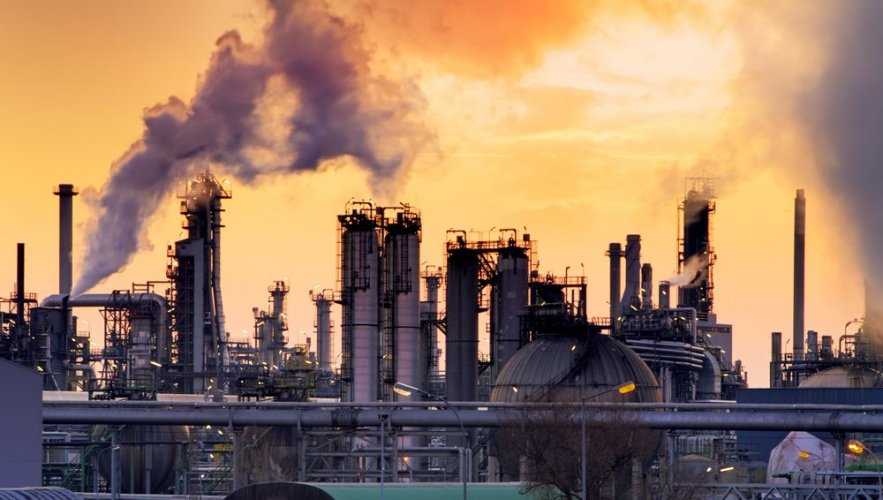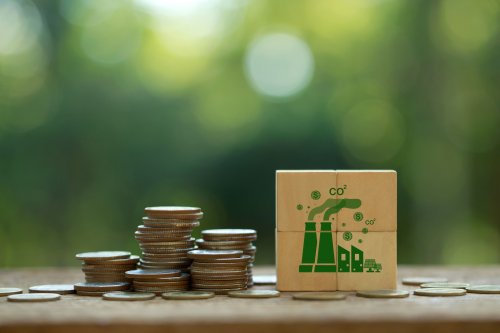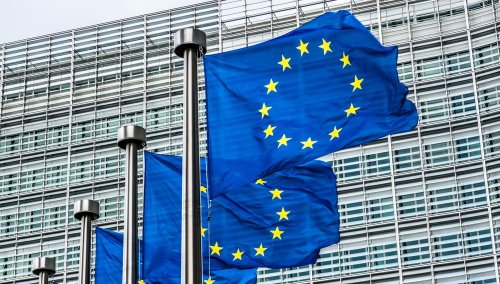EcoPolitic has received information that currently Ukrainian business has encountered problems in submitting reports on monitoring, reporting and verification of greenhouse gas emissions (GHG). This system is the first step to create a system for trading greenhouse gas emissions.
The editors asked the Ministry of Environmental Protection and Natural Resources and received an exclusive comment.
The implementation of the emissions trading system (ETS) in Ukraine is one of the international obligations within the framework of the Association Agreement with the EU, namely the implementation of the provisions of Directive 2003/87/EC.
It is designed to create prerequisites for:
- limitation of greenhouse gas (GHG) emissions;
- negotiations regarding the features of bilateral cooperation between Ukraine and the EU within the framework of the mechanism of carbon adjustment of imports;
- preventing an increase in the average temperature of the planet by more than 1.5°C.
However, a full-scale invasion made its adjustments.
Thus, on February 28, 2022, the Government, during martial law, suspended the terms of providing some services and reports. In particular, this applies to the implementation of the Law "On the principles of monitoring, reporting and verification of greenhouse Gas Emissions".
Thus, the Ministry of Environment suspended the following services:
- registration action;
- approval of the monitoring plan;
- approval of the monitoring plan with changes;
- approval of the improvement report;
- acceptance of the operator's report;
- approval of the verifier's decision to conduct off-site verification.
The work of the MFA system will be resumed within a month after the suspension or cancellation of martial law.
In the comments of the Ministry of Environment, it was also emphasized that the reports of operators deemed satisfactory by the results of verification, together with the verification reports for the entire period, must be submitted within 3 months after the termination or cancellation of martial law.
Currently, the business community points to cases of refusal to approve greenhouse gas emission monitoring plans for reasons that, in their opinion, do not affect the actual accuracy of monitoring. However, the Ministry of Environment explained that the refusal is based on an exhaustive list of circumstances.
The documents thus submitted by the operators must meet the requirements of the legislation in the field of MFA, adopted taking into account the norms of the EU legislation. In particular, Directive No. 2003/87/EC, Regulation of the European Commission No. 601/2012 on monitoring and reporting on greenhouse gas emissions.
The actual implementation of ETS in Ukraine should be based on verified data of the Ministry of Foreign Affairs for at least 3 years. Otherwise, there will be high operational risks of ETS dysfunction, that is, the system will not contribute to reducing emissions.
To calculate and account for greenhouse gas emissions in 2022, it is necessary to use the GHG emission coefficients published on the website Ministry of Environment.
These coefficients are used for the National Report (cadastre) of anthropogenic emissions from sources and absorption by sinks of greenhouse gases, submitted by Ukraine to the Secretariat of the UN Framework Convention on Climate Change. They are published every year.
The comment noted that a business may use a laboratory that is not accredited in accordance with DSTU ISO/IEC 17025:2019 to determine calculation coefficients. However, only if there is no access to accredited laboratories or this would lead to unreasonable costs and if the laboratory meets equivalent requirements.
Also, a business can apply a lower accuracy level for category B installations by one level, and for category A and B installations - up to two accuracy levels lower, subject to a minimum accuracy level of 1.
At the same time, it is necessary to make changes to the plan and notify the Ministry of Environment about temporary changes in the application of the accuracy level.
As EcoPolitic previously reported, polluting enterprises in Ukraine extended the deadline for submitting monitoring documentation, reporting and verification of greenhouse gas emissions (GHG) for a period of up to three months after the termination or abolition of martial law or a state of war.





